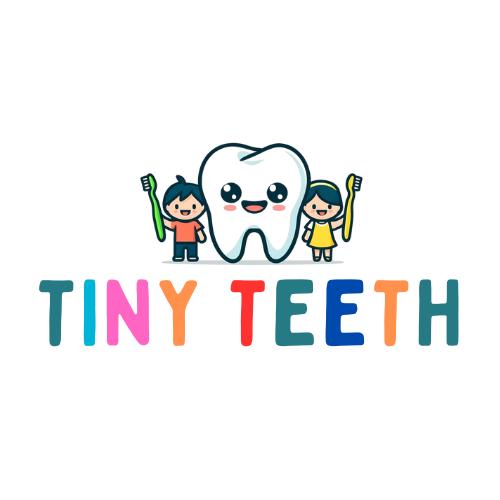Pediatric Dentistry in Visakhapatnam
Gentle Care for Growing Smiles
At Tiny Teeth, we specialize in pediatric dentistry—focused entirely on children’s oral health. Our child-friendly environment, fun dental approach, and expert pediatric dentists ensure that your little one feels relaxed and cared for at every visit. From teething toddlers to curious teens, we provide personalized care to protect and strengthen their smiles.
Our Pediatric Dental Services

Teeth Cleaning
What Is Teeth Cleaning?
Professional teeth cleaning is a routine procedure that removes plaque, tartar, and stains from your child’s teeth. It’s usually done every 6 months as part of preventive dental care.
Why It’s Needed?
Even with good brushing habits, food particles and plaque can build up in hard-to-reach areas. This buildup can lead to cavities, gum issues, and bad breath over time.
Precautions:
Encourage kids to brush twice a day with fluoride toothpaste.
Avoid sugary snacks between meals.
Schedule regular dental checkups.

Dental Fillings
What Is Dental Fillings?
Fillings are used to treat cavities in baby or permanent teeth. We use tooth-colored, biocompatible materials that are safe for kids.
Why Cavities Happen:
Poor brushing, frequent snacking, sugary drinks, and lack of fluoride can cause tooth decay. Even baby teeth are vulnerable and need care.
Precautions:
Limit sticky and sugary foods.
Rinse mouth after meals.
Ensure brushing after breakfast and before bed.

Pulp Therapy (Baby Root Canal)
What Is Pulp Therapy?
Pulp therapy treats infected or inflamed pulp (the nerve inside the tooth). It helps save the tooth until it’s ready to naturally fall out.
Why It’s Needed:
Deep cavities or trauma (like a fall) can expose the nerve, causing pain or swelling. Left untreated, the infection could spread and harm future permanent teeth.
Precautions:
Never skip dental visits if your child complains of toothache.
Watch for swelling, pus, or sensitivity.
Avoid giving your child hard foods if they complain of pain.

Fluoride Application
What is Fluoride Application?
A topical fluoride varnish is applied to the teeth to strengthen enamel and reduce the risk of decay. It’s quick, painless, and effective.
Why It’s Needed:
Children’s teeth have thinner enamel, making them more prone to decay. Fluoride acts like a shield and helps repair early damage.
Precautions:
Supervise brushing to prevent swallowing toothpaste.
Use a rice-grain amount of fluoride toothpaste for toddlers.
Drink water with safe levels of fluoride.

Sealant Application
What Is Sealant Application?
Sealants are thin coatings applied to the chewing surfaces of back teeth (molars). They seal the grooves where food gets stuck.
Why It’s Needed:
Molars have deep pits that are hard to clean. These areas are more prone to cavities, especially in kids who are still learning proper brushing techniques.
Precautions:
Make sure kids brush gently over sealed teeth.
Avoid chewing hard candies or ice that can dislodge sealants.
Have sealants checked every visit.

Silver Diamine Fluoride (SDF)
What is Silver Diamine Fluoride (SDF)?
SDF is a safe liquid applied to small cavities to stop decay without drilling or numbing.
Why It’s Useful:
Perfect for kids who are very young, fearful, or have special needs. It buys time until the child is ready for further treatment (if needed).
Precautions:
SDF can temporarily stain the cavity black—this is normal.
Maintain good oral hygiene to avoid new decay.
Monitor treated teeth and follow up as advised.

Preventive Resin Restorations
What is Preventive Resin Restorations?
PRRs are a hybrid of sealants and fillings. They are used when a tooth has early signs of decay but hasn’t formed a full cavity.
Why It’s Important:
They prevent the need for more invasive procedures by stopping decay in its earliest stage.
Precautions:
Avoid sugary drinks and bedtime snacking.
Encourage brushing right after meals.
Schedule regular exams to catch decay early.

Space Maintainers
What is Space Maintainers?
A small device placed when a baby tooth is lost early. It keeps space open for the permanent tooth to grow in properly.
Why It’s Needed:
When space is lost, nearby teeth can drift, causing alignment issues that may need braces later.
Precautions:
Keep the appliance clean and check for looseness.
Avoid sticky or chewy foods.
Visit the dentist if the device causes discomfort.

Early Identification & Correction of Malalignment
What It Is:
Regular growth monitoring helps identify crooked teeth, crossbites, or jaw issues early. We offer interceptive orthodontics to guide development.
Why It’s Crucial:
Correcting problems early can prevent complex orthodontic treatment later and support healthy speech, chewing, and self-esteem.
Precautions:
Don’t ignore thumb-sucking or mouth breathing.
Visit the dentist by age 1, then every 6 months.
Watch for signs like difficulty biting or crowding.
Why Choose
Tiny Teeth for Your Child
Specialized Pediatric Dentists with child-specific training
Kid-Friendly Environment filled with bright colors, toys, and friendly faces
Safe, Modern Tools and premium-quality materials like 3M & Ivoclar
Family-Oriented Care with flexible scheduling and clear parent communication
Need Help?
FAQs – Parents Often Ask
At what age should my child first visit the dentist?
The American Academy of Pediatric Dentistry recommends a child’s first dental visit by age 1 or within 6 months of the first tooth eruption. Early visits help prevent problems and build comfort with the dentist.
Are baby teeth really that important? They fall out anyway!
Yes! Baby teeth guide the growth of permanent teeth, aid in chewing and speaking, and help maintain facial structure. Early loss due to decay can cause alignment and speech issues.
What should I do if my child has a toothache?
Rinse with warm saltwater, apply a cold compress if swollen, and contact your dentist immediately. Avoid self-medicating with painkillers or applying heat.
Is thumb-sucking harmful?
It’s normal for infants, but if it continues past age 4, it can affect teeth alignment and jaw development. Early dental guidance can help stop the habit.
How often should my child have a dental check-up?
Every 6 months unless your dentist recommends otherwise. These visits help catch issues early and reinforce healthy habits.

